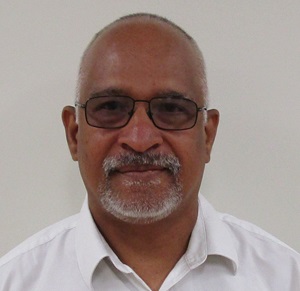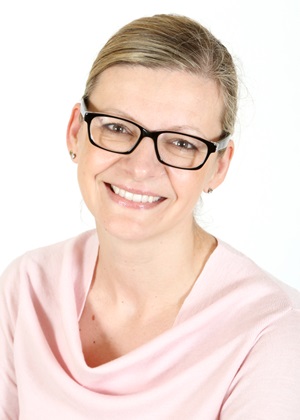2024 | Volume 25 | Issue 3
The Educator of Merit Award—administered by the Academy of Surgical Educators—is awarded annually in the following categories:
- SET Supervisor/SIMG Supervisor of the Year recognises an exceptional contribution toward supporting Trainees or Specialist International Medical Graduates (SIMGs) and is awarded in each state or territory in Australia and Aotearoa New Zealand.
- Facilitator/Instructor of the Year recognises an exceptional contribution by a course facilitator/instructor teaching Professional Development or Skills Education courses and is awarded to a facilitator/instructor across Australasia.
- SET Supervisor/SIMG Supervisor of the Year recognises an exceptional contribution toward supporting Trainees or Specialist International Medical Graduates (SIMGs) and is awarded in each state or territory in Australia and Aotearoa New Zealand.
- Facilitator/Instructor of the Year recognises an exceptional contribution by a course facilitator/instructor teaching Professional Development or Skills Education courses and is awarded to a facilitator/instructor across Australasia.
In 2023, the Academy of Surgical Educators awarded eight SET Supervisor/SIMG Supervisor of the Year awards, and two Facilitator/Instructor of the Year awards.
Nominations for the 2024 Educator of Merit awards are now open and close on 25 June. You can complete a nomination or get further information, here.
Meet two of our SET/SIMG Supervisor of the Year awardees who share their surgical education experience:

Dr Sabu Thomas, general surgeon, Western Australia
What inspired you to pursue surgical education?
“The opportunity to mould and train younger people so that they become better human beings and better surgeons. Opportunity to sensitise Trainees to resource constraints in many parts of the world and challenge them to think about working in those places using their skills and training. Teaching them not only on gold standards but on revised gold standards which take into consideration locally available resources to offer the best treatment.”
What is your proudest moment as a surgical educator?
“Finding that my Trainees have done very well in completing their training and holding onto principles of living that I had the opportunity to share with them. Particularly the concern for the disadvantaged and understanding for the remotely placed.”
Any advice for new surgical educators just getting started?
“The opportunity to be an educator is not just an opportunity for transfer of technical competence—it is an opportunity to role model, make a better person, and the opportunity to challenge a younger person to respond to situations of need and resource constraints. Grab these opportunities and I can assure you that the Trainees will remember you as a person who made a difference in their lives.”
“Finding that my Trainees have done very well in completing their training and holding onto principles of living that I had the opportunity to share with them. Particularly the concern for the disadvantaged and understanding for the remotely placed.”
Any advice for new surgical educators just getting started?
“The opportunity to be an educator is not just an opportunity for transfer of technical competence—it is an opportunity to role model, make a better person, and the opportunity to challenge a younger person to respond to situations of need and resource constraints. Grab these opportunities and I can assure you that the Trainees will remember you as a person who made a difference in their lives.”

Dr Magdalena Biggar, general surgeon, Aotearoa New Zealand
What inspired you to pursue surgical education?
“When I first became a FRACS it seemed a natural fit because the registrar experience was fresh, and I felt I knew what registrars wanted or needed. I had several fabulous surgical educators who taught me, so I wanted to reproduce for others what they did for me. I still want to emulate the energy that they gave and now education for me is also about wanting to ensure that there is a solid ‘next generation’ who will take over and look after me, my family, and my community (and run the department well) in the future.”
What is your proudest moment as a surgical educator?
“There were times when Trainees have indicated that they thought they were getting good teaching from me. The Dennys Sumner award was very cool, the Educator of Merit Award likewise. Also, the amazing feedback we get about the Middlemore Hospital component of the General Surgery Fellowship exam preparation course in Aotearoa New Zealand, which reflects the teaching energy of our whole department.”
“When I first became a FRACS it seemed a natural fit because the registrar experience was fresh, and I felt I knew what registrars wanted or needed. I had several fabulous surgical educators who taught me, so I wanted to reproduce for others what they did for me. I still want to emulate the energy that they gave and now education for me is also about wanting to ensure that there is a solid ‘next generation’ who will take over and look after me, my family, and my community (and run the department well) in the future.”
What is your proudest moment as a surgical educator?
“There were times when Trainees have indicated that they thought they were getting good teaching from me. The Dennys Sumner award was very cool, the Educator of Merit Award likewise. Also, the amazing feedback we get about the Middlemore Hospital component of the General Surgery Fellowship exam preparation course in Aotearoa New Zealand, which reflects the teaching energy of our whole department.”
Any advice for new surgical educators just getting started?
“For technical skills, ultimately registrars learn best through ‘doing’, so I try to ‘hand over the knife’ on every case, unless there is a reason not to (and unfortunately there are often reasons, like case complexity or time pressures) and add ‘commentary’ before, during and after as appropriate. Commentary alone doesn’t ’stick’.
“For non-technical skills, I think people learn only by good example. No amount of ‘lecturing’ can turn someone into a good team player, with an inquiring mind, who communicates well, has cultural and interpersonal EQ, and takes responsibility for individual patient’s journeys . I think only role modelling, with explicit stating of expectations, can teach those skills and they are so, so important.”
“For technical skills, ultimately registrars learn best through ‘doing’, so I try to ‘hand over the knife’ on every case, unless there is a reason not to (and unfortunately there are often reasons, like case complexity or time pressures) and add ‘commentary’ before, during and after as appropriate. Commentary alone doesn’t ’stick’.
“For non-technical skills, I think people learn only by good example. No amount of ‘lecturing’ can turn someone into a good team player, with an inquiring mind, who communicates well, has cultural and interpersonal EQ, and takes responsibility for individual patient’s journeys . I think only role modelling, with explicit stating of expectations, can teach those skills and they are so, so important.”